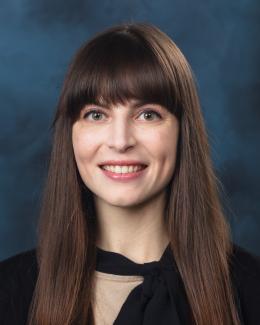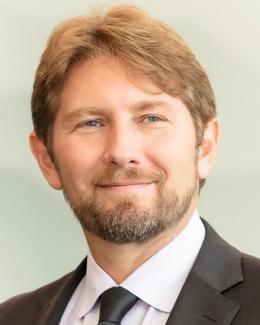The Quantum Science Center hosted its first in-person all-hands meeting at the Gaylord Opryland Resort & Convention Center on May 22–24, 2023. Credit: Teresa Hurt/ORNL, U.S. Dept. of Energy
In late May, the Quantum Science Center convened its first in-person all-hands meeting since the center was established in 2020. More than 120 QSC members gathered in Nashville, Tennessee to discuss the center’s operations, research and overarching scientific aims. This event occurred just over halfway through the center’s five-year tenure — an important moment for planning future progress and scientific advances.
Speakers presented on a variety of topics relevant to the QSC’s key development areas, including quantum materials discovery and development, quantum algorithms and simulation, and quantum devices and sensors for discovery science. Members also discussed strategies for addressing the QSC’s current needs, enabling technology transfer agreements and expanding workforce development activities.

The meeting also featured a poster session that highlighted the QSC’s research efforts. The Microsoft-sponsored session enabled attendees to exchange ideas and learn more about the QSC’s ongoing research and projects. The center identified many notable presentations with several participants recognized for having the best posters: Wendy Huang, Samuel Peana, and Jared Newton and Abby Hickin, all of Purdue University; Xiangzhi Li of Los Alamos National Laboratory; Olivia Liebman of the University of California, Los Angeles; and Jack Villanova of Oak Ridge National Laboratory.
This event continued the QSC tradition of hosting interactive poster sessions that feature the work of QSC graduate students and postdoctoral researchers. Additionally, this all-hands meeting brought the Postdoctoral and Graduate Student Association together for an evening of socializing and games led by Purdue’s Morris Yang. Events such as these promote results from early-career research to an audience of peers and experts while also providing networking opportunities.
Prior to the all hands, public health policies related to the COVID-19 pandemic prevented large-scale QSC assemblies. After almost three years of virtual collaboration and smaller in-person meetings, members were in an excited state when they gathered in person for the May meeting.
Travis Humble, director of the QSC, reflected on the event, “Seeing everyone together gave a great sense of the span and impact the center is having within the national quantum information science community.”
In addition to ORNL, the meeting garnered attendees from three other U.S. Department of Energy national laboratories: Fermi National Accelerator Laboratory, LANL and Pacific Northwest National Laboratory. Universities from across the United States were also represented, including the California Institute of Technology; Harvard University; Illinois Institute of Technology; Northwestern University; Princeton University; Purdue; the University of California, Berkley; UCLA; the University of California, Santa Barbara; the University of Tennessee, Knoxville; and the University of Washington. Staff from industry partners Microsoft, Infleqtion (ColdQuanta) and IBM were also present.
The QSC, a DOE National Quantum Information Science Research Center led by ORNL, performs cutting-edge research at national laboratories, universities and industry partners to overcome key roadblocks in quantum state resilience, controllability and ultimately the scalability of quantum technologies. QSC researchers are designing materials that enable topological quantum computing; implementing new quantum sensors to characterize topological states and detect dark matter; and designing quantum algorithms and simulations to provide a greater understanding of quantum materials, chemistry and quantum field theories. These innovations enable the QSC to accelerate information processing, explore the previously unmeasurable and better predict quantum performance across technologies. For more information, visit https://qscience.org.
UT-Battelle manages ORNL for DOE’s Office of Science, the single largest supporter of basic research in the physical sciences in the United States. DOE’s Office of Science is working to address some of the most pressing challenges of our time. For more information, visit https://energy.gov/science. — Reece Brown




